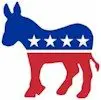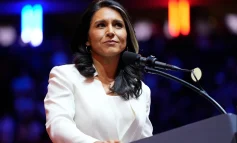LANSING —The leadership of the Michigan Democratic Party this week announced their intention to comply with the new state law establishing a January 15, 2008 presidential primary, and to select their delegates to the Democratic National Convention on that day.
This was in response to what they say is the Democratic National Committee’s biased stance on New Hampshire and Iowa taking precedence among all states in choosing the Democratic and Republican candidates for President.

“Michigan Democrats believe that no state should enjoy a privileged position every four years in selecting our party’s presidential nominee. New Hampshire’s stated intent to move their primary before January 19th, in direct violation of the DNC rules, is an effort to perpetuate their self-appointed privileged position. That makes the delegate selection process in other states, including Michigan, less meaningful, and results in the candidates paying less attention to the issues that are important to Michigan and other states,” Senator Carl Levin and DNC Committee Woman Debbie Dingell to the Democratic National Committee Chairman Howard Dean.
Since 1996, Michigan’s Democrats have held caucuses to select their national convention delegates. In those presidential cycles, Michigan’s Democrats and Republicans have not been able to agree to a primary that complies with DNC rules. This may be the most important presidential election in recent history, and both Democrats and Republicans wanted to ensure that the highest possible number of people would participate in the process. A primary does just that. For example, in 2004, approximately 165,000 Democrats participated in their party’s presidential caucuses. In 2002, 1.6 million people voted in the primary election, and 1.1 million voted in the 2006 primary. An inclusive election that provides broad participation is the best way for the voices of Michigan’s citizens to be heard.
In a question and answer paper on the decision, the Michigan Democratic Party said there should be no concern about Democratic Presidential candidates signing “pledges” not to campaign in states that break national party rules, most notably Michigan and Florida.
“First of all, the guiding principles behind holding an early primary in Michigan are to ensure the maximum participation by our citizens, and to hold accountable those states that have long held a monopoly on the system for their decisions to break national party rules.
“Second, any “pledge” made by candidates is unenforceable. People and organizations who support candidates will not ignore the January 15th primary, and will find legal ways to make sure that Michigan voters understand where their candidates stand on the issues. The “prohibition” on campaigning does not include, for example, fundraising activities. The people of Michigan are well known nationally for contributing to candidates for office, which gives candidates reasons to be in our state. Some presidential candidates are known for organizing “low-dollar” fundraising events, which often draw hundreds or thousands of likely voters. In sum we expect that candidates will look for ways to come to Michigan.
“Third, Republican candidates for President will be campaigning in Michigan. Democrats cannot afford to let Republicans have this state to themselves for the next several months, and they know that. If Democratic candidates are not campaigning here directly, it makes endorsements by Michigan’s leaders even more important because it is those Michigan leaders who will have to fight on their behalf. The power of Michigan’s Democratic leadership and activists will be magnified if candidates do not actively campaign in our state.
“Finally, the national media will cover the primary in Michigan whether or not candidates have active organizations here. Michigan’s January 15th primary will be third contest on the calendar, and as a large, diverse Midwestern state, how the candidates fare here is important. All of the candidates’ names will be on the ballot, and both the campaigns and the media know that the results will have an impact on how the candidates are viewed nationally. ”
The MDP also advised voters not to worry about Michigan delegates not being seated at the convention as a result of having broken party rules. “Expect that the delegates will end up being seated in Denver. There is a very slim chance that the eventual nominee won’t want to seat the Governor, the most senior Congressional delegation in the Congress, and the leaders of national labor and other issue organizations and activists who he or she will rely upon to carry Michigan in the fall. ”
The regularly scheduled February election is being moved up to January to accommodate the extra costs an extra primary would incur. According to the MDP, “A state primary is the most inclusive, accessible, and familiar way for our citizens to cast their ballot. The state Republican convention includes 3,000-5,000 people, whereas the 2004 Democratic caucus had about 165,000 participants. Voting is a basic right, and we must ensure that there is a forum for democracy in electing a President.”
The MDP added “A wide array of Democratic and Republican leaders came together to pass the primary bill into law. The leaders of both political parties had numerous conversations, and the majority agreed that an early primary is the best way to ensure Michigan has an important place in the issue dialogue. Getting the two parties together on anything is a major deal, so this decision went above politics. Even though most of the Democratic candidates (at this juncture) are not planning on coming to physically campaign in Michigan, we expect they will have robust efforts here.”






Leave a Reply